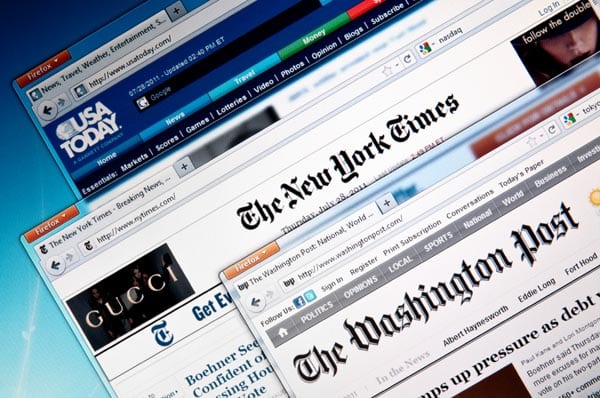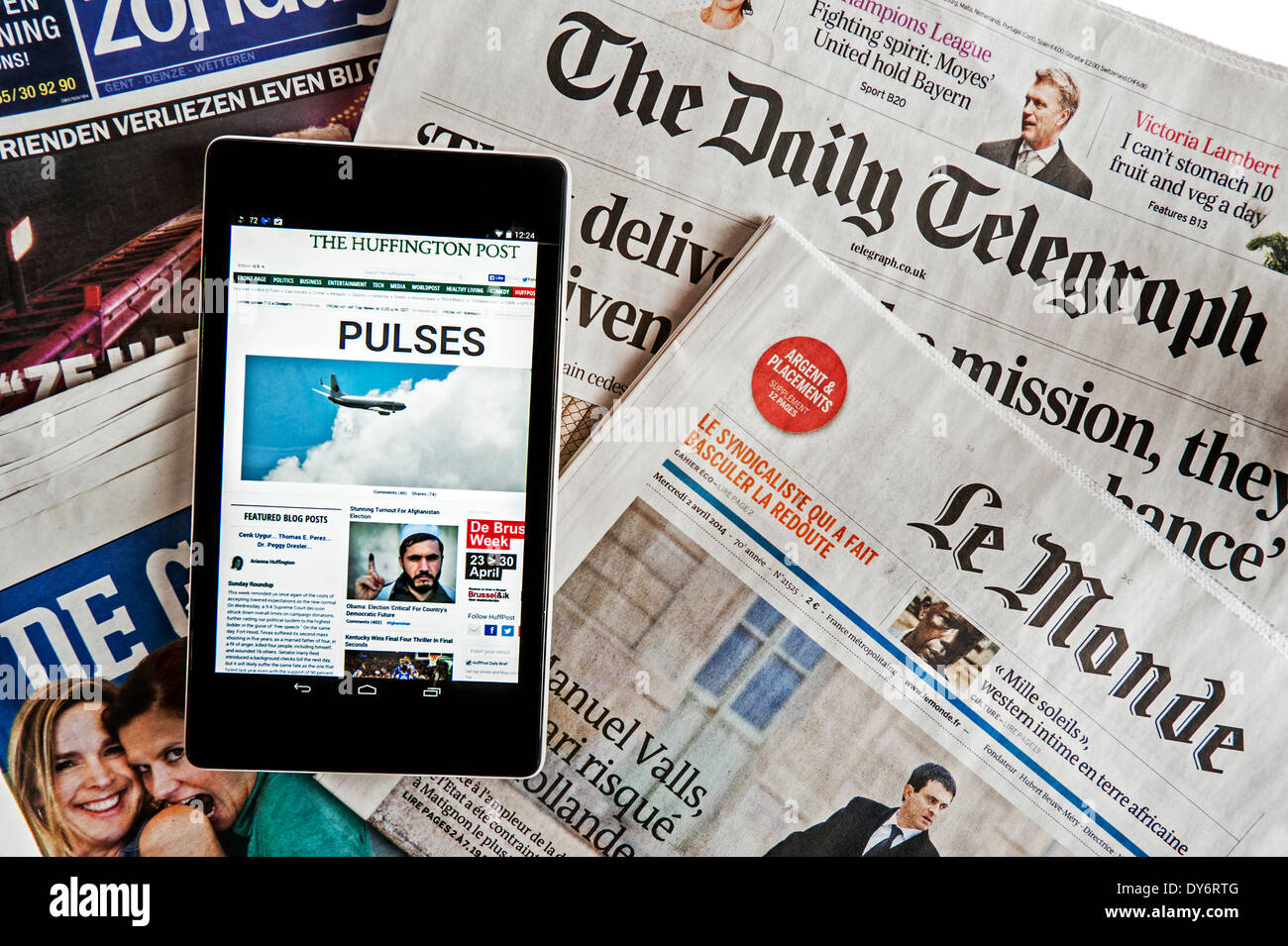The Relevance of Fact-Checking in the Globe of News Online
The occurrence of misinformation in today's on-line news landscape has reached alarming degrees. Fact-checking companies play an important role in combating this pattern. They confirm cases and enhance the integrity of journalism. Nevertheless, the performance of these companies frequently rests on their techniques and public perception. As target markets navigate this complex atmosphere, the ramifications of their findings might form the future of news usage and depend on. What does this mean for the stability of information moving forward?

The Increase of Misinformation in the Digital Age
Just how has the development of electronic innovation added to the spread of misinformation? The fast growth of the internet and social media sites platforms has promoted the dissemination of info at an unmatched speed. Individuals can share articles, video clips, and opinions with a mere click, often without validating the material's precision. Formulas prioritize spectacular or psychologically billed product, bring about a spreading of deceptive stories that catch focus.
Additionally, the privacy managed by digital systems enables individuals to spread out false information without liability (stnews.live). Misinformation thrives in resemble chambers, where users are subjected mostly to viewpoints that strengthen their ideas, better entrenching fallacies. The saturation of details can overwhelm users, making it challenging to determine reliable resources from undependable ones. As a result, misinformation has become a prevalent concern in the digital landscape, influencing public viewpoint and rely on legit news sources
The Function of Fact-Checking Organizations
Fact-checking organizations play a necessary function in enhancing the reliability of journalism by confirming cases made in report. Their efforts are essential in combating false information, ensuring that precise information dominates in the electronic landscape. By holding media outlets answerable, these organizations contribute substantially to educated public discourse.
Enhancing Reputation in Journalism
While false information multiplies in the digital age, fact-checking companies play a vital duty in improving the reputation of journalism. These companies carefully confirm insurance claims made in news posts, public declarations, and social media sites messages, ensuring that details shared to the general public is precise and credible. By giving independent assessments, they serve as an essential source for reporters, assisting them preserve high requirements of stability. In enhancement, their initiatives promote openness in media, cultivating public trust. As target markets end up being increasingly critical, the visibility of credible fact-checking entities can identify trustworthy news sources from those that might spread falsehoods. Ultimately, the dedication of fact-checking organizations to promote truthfulness is important for the health of democratic discussion.
Combating Misinformation Properly
As misinformation remains to spread rapidly throughout electronic systems, the duty of fact-checking organizations becomes significantly critical in the battle for accurate information. These organizations act as guard dogs, looking at insurance claims made by somebodies and media outlets to assure responsibility. By employing strenuous study techniques and expert analysis, they validate truths and make clear deceptive narratives. Their searchings for are shared with different channels, educating the public and cultivating important thinking. Furthermore, partnerships with social media systems boost their reach, permitting punctual flagging of false details. As digital literacy grows, the impact of fact-checking companies is crucial in equipping target markets to recognize truth from fraud, eventually adding to an extra informed culture.
Just How False Information Affects Public Assumption
False information substantially threatens rely on media, leading target markets to question the integrity of news sources. As an outcome, people commonly gravitate in the direction of electrical outlets that enhance their existing beliefs, adding to the polarization of viewpoints. This dynamic develops a fragmented information landscape, where shared understanding comes to be increasingly tough to achieve.
Trust fund in Media

Trust fund in media has actually become progressively vulnerable in the digital age, where the quick spread of incorrect info can skew public assumption. As misinformation proliferates throughout social media and online systems, target markets usually discover it testing to recognize trustworthy resources from unreliable ones. This unpredictability cultivates hesitation, leading lots of people to question the intentions behind news coverage. Trust fund in developed media electrical outlets has actually decreased, as consumers progressively turn to alternate resources that may do not have strenuous content standards. This disintegration of count on not just impacts individual ideas however also threatens the cumulative capacity to engage in educated discussions. Ultimately, the stability of journalism goes to risk, highlighting the vital need for reliable fact-checking to recover self-confidence in the media landscape.

Polarization of Opinions
The boosting hesitation towards traditional media has added to an expanding polarization of viewpoints amongst the public. Misinformation, usually distributed through social networks and on the internet systems, plays a considerable function in forming unique ideological separates. People often seek details that straightens with their pre-existing beliefs, strengthening their perspectives while dismissing opposing viewpoints. This echo chamber impact heightens divisions, leading to a fragmented public discourse where consensus becomes significantly evasive. Additionally, sensationalized narratives prosper in this environment, further skewing public understanding and cultivating question in credible resources. As polarization escalates, the need for reliable fact-checking ends up being paramount to connect gaps and promote informed discussions, ultimately making certain a much more cohesive society efficient in navigating complicated problems.
Methods for Effective Fact-Checking
Efficient fact-checking depends on a systematic technique that includes extensive study, confirmation of resources, learn this here now and crucial evaluation of cases. A fundamental strategy is cross-referencing details from multiple legitimate sources to validate its precision. Fact-checkers typically make use of specialized data sources and archives to trace the beginning of specific declarations, making certain that the reported information lines up with documented proof.
One more vital approach includes scrutinizing the context in which claims exist. Deceptive information can occur from out-of-context quotations or careful Our site information usage. By taking a look at the more comprehensive narrative, fact-checkers can determine potential prejudices or false impressions.
Additionally, engaging with specialists in relevant fields can provide quality and understanding that improves the fact-checking procedure. This partnership can uncover nuances that laypeople may forget - stnews.live. Eventually, a self-displined method integrating these methods fosters a much more informed public, boosting the integrity of details disseminated in the digital age
The Effect of Social Network on News Usage
Just how has social media changed the method people eat news? The development of systems like Facebook, Twitter, and Instagram has especially modified news intake patterns. News is now distributed swiftly, allowing users to access real-time updates and engage with web content through likes, shares, and remarks. This immediacy has fostered a choice for bite-sized details, typically at the expenditure of thorough evaluation.
Additionally, social networks makes it possible for individualized news feeds, where algorithms curate material based on customer preferences, developing resemble chambers that might limit exposure to diverse point of views. The duty of typical news electrical outlets has reduced as individuals significantly depend on peer referrals and trending topics. The reliability of info is commonly endangered, as sensationalism can overshadow accurate reporting. In general, social media sites has actually improved news usage, stressing speed and customization while testing the standards of journalistic honesty.
Equipping Audiences to Identify Reliable Sources

Furthermore, examining the authorship and organizational history of newspaper article can disclose prospective biases. Cross-referencing information across multiple reliable outlets better enhances the verification process. Utilizing digital tools, such as internet browser extensions that rate the credibility of web sites, can additionally aid in determining trustworthy details. By proactively engaging with these sources and cultivating a critical attitude, target markets can better equip themselves to determine dependable news resources, inevitably cultivating a much more enlightened society amidst the intricacies of today's media atmosphere.
The Future of Journalism and Fact-Checking
As the media landscape progresses, the future of journalism and fact-checking faces both tests and opportunities. The surge of electronic platforms has actually democratized details dissemination, enabling diverse voices to emerge. This has also led to the expansion of misinformation, requiring robust fact-checking devices. Reporters will significantly rely upon technology, consisting of AI tools, to confirm realities swiftly and successfully.
Collaboration in between wire service and fact-checking entities is prepared for to enhance trustworthiness and openness. important site Target market engagement will play an important function, as notified viewers come to be significant partners in determining trustworthy content.
The need for liability and precision is most likely to expand, pressing reporters to promote high standards in their coverage. Ultimately, the future of journalism might depend upon its capacity to adapt to technological improvements while keeping journalistic stability, making certain that fact-checking stays a keystone of reliable news.
Frequently Asked Concerns
Just How Can I Report Misinformation I Run Into Online?
To report misinformation come across online, people can utilize platform-specific reporting devices, give clear proof, and share the info with fact-checking companies. Involving with area conversations can additionally assist raise recognition regarding the misinformation.
What Prevail Indications of Misinformation in News Articles?
Common indicators of misinformation in news articles include astonishing headings, absence of qualified resources, emotional language, irregular truths, and absence of writer qualifications. Visitors should critically examine content for these signs to determine accuracy.
How Do Fact-Checkers Validate Resources?
Fact-checkers verify resources by cross-referencing information with credible databases, consulting professionals, and checking out the original context of claims. They additionally evaluate the reliability of the sources, guaranteeing exact and trustworthy info for public intake.
What Lawsuits Can Be Taken Against False information?
Legal activities against false information may consist of character assassination suits, cease-and-desist orders, and governing fines. Sufferers can look for redress through civil courts, while some jurisdictions enforce fines or assents on platforms distributing false info.
Exist Apps for Fact-Checking News On-The-Go?
Various apps exist for fact-checking news on-the-go, including Snopes, FactCheck.org, and PolitiFact. These applications help customers verify claims swiftly, advertising notified decision-making and fostering a much more discerning technique to consuming news in real-time.